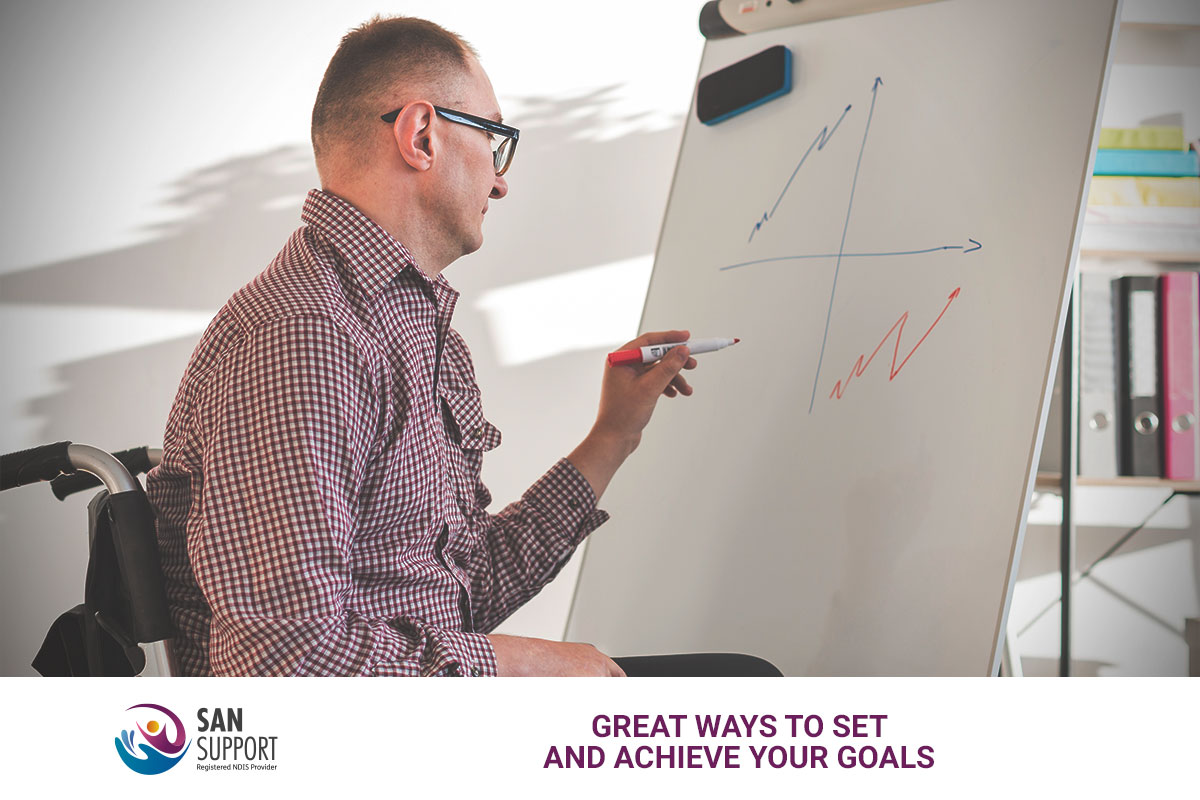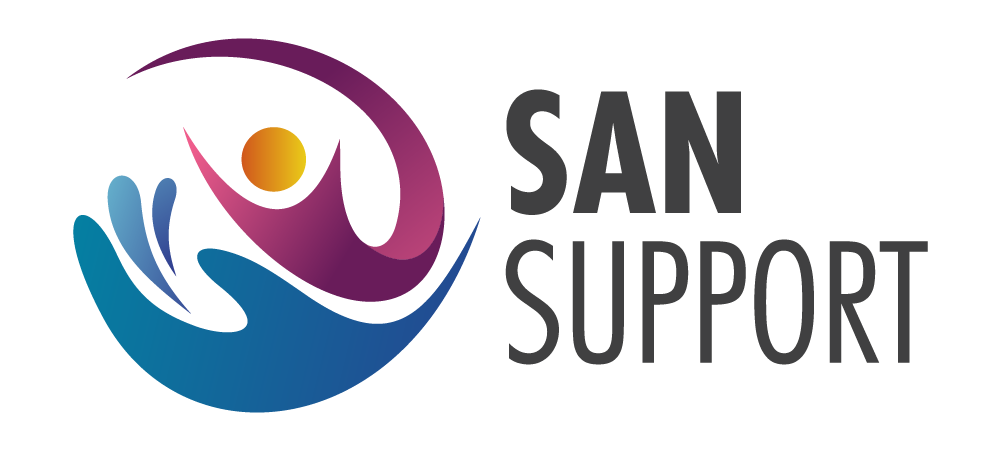
Have you started the New Year with a few resolutions or personal goals in mind? Whether you are an NDIS participant, a support worker or someone working towards greater independence, setting goals is a powerful way to create positive change in your life. More importantly, having the right strategies and supports in place can help you achieve your goal no matter how big or small it may be.
At SAN Support, we believe that setting and achieving meaningful goals is a vital part of personal growth especially for people with disability. But let’s face it: goal setting is not always easy. While the intention is there, following through often becomes the hard part.
That’s why we have put together this practical guide filled with proven goal-setting strategies that can help you take action and achieve success no matter how big or small your goals may be.
Why Goal Setting Matters for NDIS Participants
Setting personal goals helps people with disability build confidence, structure their routines and work towards long-term independence. In the context of the NDIS, goal setting is not only encouraged but supported through your individualised plan.
Whether your aim is to improve daily living skills, take part in community activities or enhance your health and wellbeing, clear goals give direction and purpose to your everyday actions.
Set SMART, Realistic Goals
To start strong, make sure your goal is clear and achievable. Avoid vague ideas like “get healthy” and instead choose something more specific and doable.
Use the SMART method:
- Specific – Define exactly what you want to achieve
- Measurable – Track your progress
- Achievable – Ensure it is within reach
- Relevant – Align it with your values and needs
- Time-bound – Set a deadline
Example:
Goal: Cook spaghetti bolognese independently by the end of the month
Stretch goal: Cook a three-course meal for a family dinner
By keeping your goals realistic, you increase your chances of staying motivated and reaching success.
Define How You’ll Measure Success
Once your goal is set, decide how you will know when you are progressing. Tracking is essential for staying focused and celebrating wins.
You can measure your progress by:
- Steps taken or distance walked using a fitness tracker
- Skills achieved (e.g. learning a new recipe)
- Positive feedback from a coach, therapist or support worker
Use tools like:
- Goal-tracking apps
- Journals or notebooks
- Visual progress charts or calendars
This keeps your NDIS goal tracking structured and rewarding.
Know Your “Why”
Understanding why your goal matters can keep you going, even when motivation dips. Link your goal to something meaningful to make it stick.
Instead of saying, “I want to join a walking group,” say,
“I want to join a walking group to stay active, meet new people and improve my mental health.”
Connecting your goal to your quality of life and wellbeing gives it personal value and emotional importance.
Share Your Goal with a Support Person
Having someone to share your journey with can make a huge difference. Choose a support worker, family member or friend who can:
- Cheer you on
- Help break down barriers
- Keep you accountable
- Celebrate your progress
This team approach makes achieving personal goals more enjoyable and sustainable especially when you are using your NDIS supports for goal planning.
Set a Clear Deadline
Timeframes create urgency and structure. Without them, it is easy to delay taking action.
Your deadline could be:
- Specific: “Attend two job interviews by March 30”
- Event-based: “Be ready to participate in the City2Surf by August”
- Habit-driven: “Do one hour of physiotherapy every week for three months”
Choosing the right time frame helps you stay focused and prevents procrastination.
Break It Down into Sub-Goals
Large goals can feel overwhelming. To manage them more effectively, break them into smaller steps or tasks.
Let’s say your goal is to move into Supported Independent Living (SIL). You can break that down into:
- Step 1: Tour different SIL housing options
- Step 2: Practise cooking and cleaning routines
- Step 3: Create a personal budget with a support coordinator
- Step 4: Transition to living with limited assistance
Small steps help you stay on track while building skills and confidence along the way.
Stay Accountable
Accountability increases commitment. Once you have defined your goal, make it visible and check in regularly.
Try:
- Posting your goal somewhere you will see it daily (like your fridge or bedroom wall)
- Setting reminders on your phone or using a goal-tracking app
- Discussing your progress in your NDIS support worker sessions or weekly check-ins
When you consistently review your goal, you reduce the risk of giving up or losing direction.
Keep Going Even When It Gets Hard
No journey is perfect. You may face setbacks, bad days or low energy but that’s okay.
Remind yourself that progress is not always linear. What matters is consistency and persistence, not perfection. If you fall off track, pick up where you left off and refocus.
Persistence builds resilience and every effort you make brings you closer to your goal.
Achieve Your Goals with the Right Support
Reaching your goals does not happen overnight but with a clear plan and the right people in your corner, it absolutely can happen.
At SAN Support, we help NDIS participants set and work toward meaningful goals that improve daily living, community participation, health and overall independence. Whether you are just getting started or need help staying on track, we are here to walk beside you every step of the way.
Let’s make this year the one where you turn your dreams into achievable, rewarding milestones one goal at a time.
